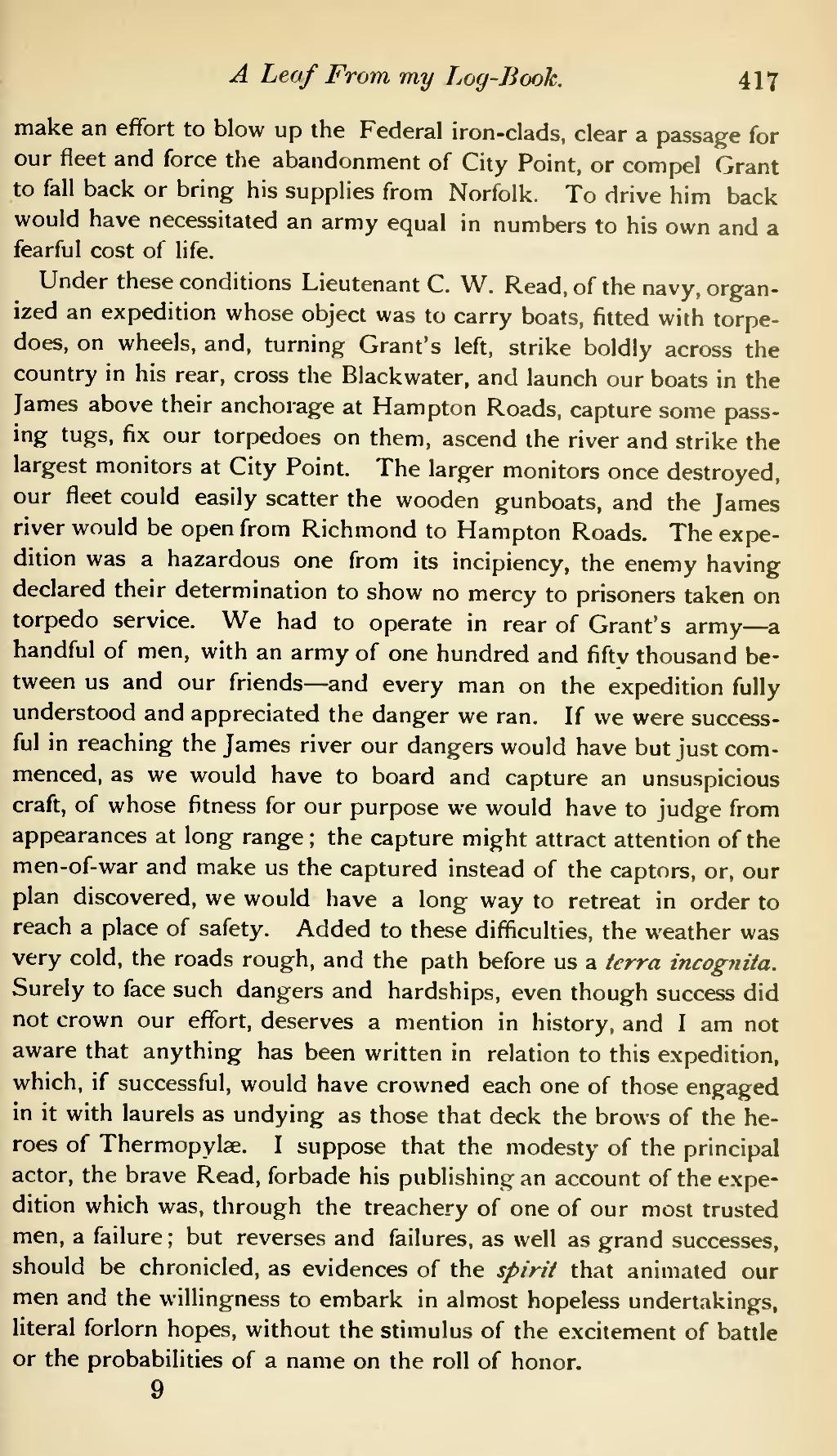A Leaf From my Log-Book. 417
make an effort to blow up the Federal iron-clads, clear a passage for our fleet and force the abandonment of City Point, or compel Grant to fall back or bring his supplies from Norfolk. To drive him back would have necessitated an army equal in numbers to his own and a fearful cost of life.
Under these conditions Lieutenant C. W. Read, of the navy, organ- ized an expedition whose object was to carry boats, fitted with torpe- does, on wheels, and, turning Grant's left, strike boldly across the country in his rear, cross the Blackwater, and launch our boats in the James above their anchorage at Hampton Roads, capture some pass- ing tugs, fix our torpedoes on them, ascend the river and strike the largest monitors at City Point. The larger monitors once destroyed, our fleet could easily scatter the wooden gunboats, and the James river would be open from Richmond to Hampton Roads. The expe- dition was a hazardous one from its incipiency, the enemy having declared their determination to show no mercy to prisoners taken on torpedo service. We had to operate in rear of Grant's army— a handful of men, with an army of one hundred and fiftv thousand be- tween us and our friends— and every man on the expedition fully understood and appreciated the danger we ran. If we were success- ful in reaching the James river our dangers would have but just com- menced, as we would have to board and capture an unsuspicious craft, of whose fitness for our purpose we would have to judge from appearances at long range ; the capture might attract attention of the men-of-war and make us the captured instead of the captors, or, our plan discovered, we would have a long way to retreat in order to reach a place of safety. Added to these difiiculties, the weather was very cold, the roads rough, and the path before us a terra mcogyiita. Surely to face such dangers and hardships, even though success did not crown our effort, deserves a mention in history, and I am not aware that anything has been written in relation to this expedition, which, if successful, would have crowned each one of those engaged in it with laurels as undying as those that deck the brows of the he- roes of Thermopylae. I suppose that the modesty of the principal actor, the brave Read, forbade his publishing an account of the expe- dition which was, through the treachery of one of our most trusted men, a failure ; but reverses and failures, as well as grand successes, should be chronicled, as evidences of the spirit that animated our men and the willingness to embark in almost hopeless undertakings, literal forlorn hopes, without the stimulus of the excitement of battle or the probabilities of a name on the roll of honor. 9
